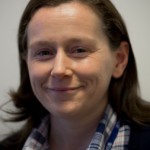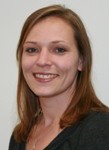The School of Biomedical Sciences (SBMS) has developed numerous initiatives to help students determine their graduate career path. These include; Employability Ambassadors, the Lab Assistants scheme, the SOLAR group and promoting becoming STEM Ambassadors. We have a Careers Liaison Academic within the School providing advice and coaching for students to gain experience and apply for roles such as Industrial Placement Years.
SBMS has a 57% female cohort (2013-14) which is slightly lower than the STEMM (science, technology, engineering, maths and medicine) average for the Russell group (61%) but higher than that for STEMM at Newcastle University (42%). Nationally there is a trend of fewer females at higher grades of scientific academia (notably from second post-doctoral position to professorial grade). The ECU Athena SWAN charter is committed to advancing gender equality in academia, particularly addressing the loss of women across the STEMM career pipeline. The School of Biomedical Sciences has recently submitted an Athena SWAN silver award application.
Preliminary research conducted in conjunction with Northumbria University, showing that a large majority of all stage 1 bioscience students, when asked to draw their ‘Perception of a biomedical scientist’, drew male scientist stereotypes. Interestingly, students from a widening participation background (regardless of gender) drew a more gender balanced proportion of scientists, suggesting they were less conditioned to what a biomedical scientist ‘should’ look like. This research will be repeated annually with stage 1 students and with the same cohorts in their final year to determine if there is a shift in gender perception.
As part of the school self-assessment process, we commissioned a ‘Women in Science’ panel and networking event to specifically promote scientific careers to female undergraduates (http://www.ncl.ac.uk/biomed/about/athenaswan/News.htm). Feedback collected from attendees (>100) reassuringly showed that the event helped their scientific careers awareness, with many positive comments regarding support provided by the school. Given that the majority of the attendees were actually stage 1 students, we were very surprised that so many expressed concern about barriers to their scientific career prospects. Some issues which arose included; perceiving having a family as detrimental to career progression, lack of exposure to female role models, and feeling a lack of confidence in approaching academic staff.
To further understand the diversity of our student’s situations and the barriers preventing them from considering pursuing scientific careers, we hosted an informal ‘food and focus’ event. Carer students indicated they found it difficult to manage studies alongside caring for dependents and that this would likely continue after graduation. International students were worried about the recognition of their degree topic in their home countries, and by the financial costs incurred by studying. Mature students raised issues around levels of generic skills (such as IT) and of transition to, and integration into University life. As a direct result we have developed some new initiatives, including:
- commitment to running a Women in Science event annually
- increasing the visibility of positive female role models with gender balance in speakers for extracurricular talks
- running a careers event specifically for international students
- facilitating confidence-building training sessions
- organising a lunch early in stage 1 for mature and carer students, inviting attendees to establish a student-led group to inform further supporting initiatives
- recruitment of mature student and parent student mentors
We will continue to review the impact of our undergraduate initiatives, with emphasis on the perceived barriers, and those groups raising specific concerns, and hope to increase the numbers of bioscience graduates entering scientific careers.
Carys Watts, School of Biomedical Sciences
 Michèle Sweeney, School of Biomedical Sciences
Michèle Sweeney, School of Biomedical Sciences
They co-chair the SBMS Equality and Fairness Athena SWAN Self-Assessment Team meetings and co-wrote the School’s Athena SWAN silver award application.

